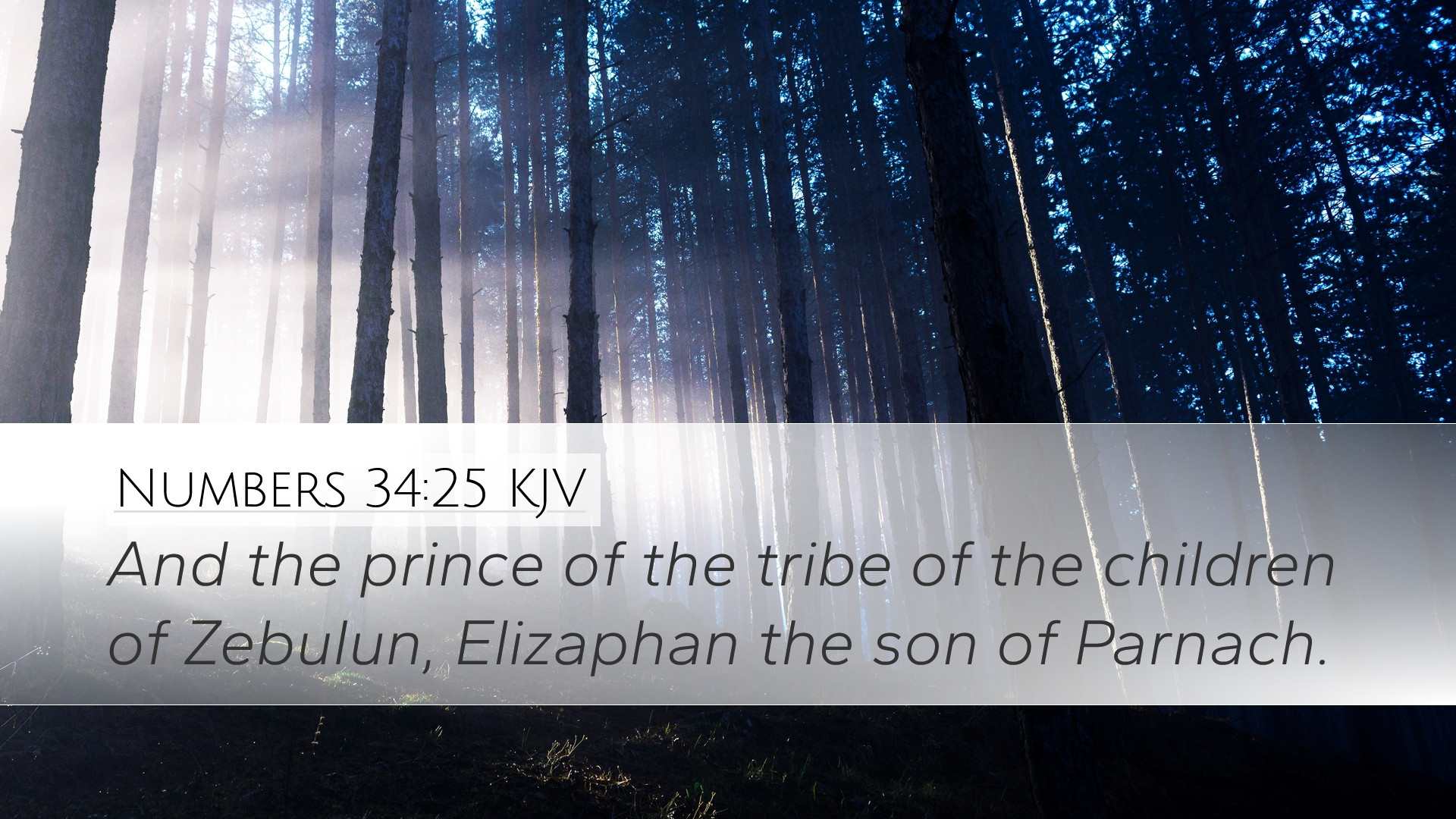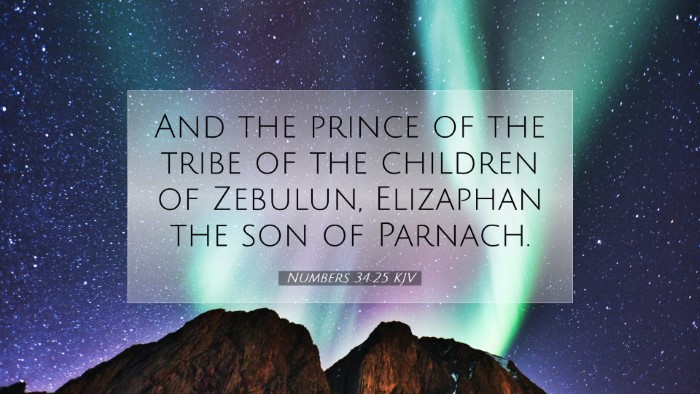Commentary on Numbers 34:25
Bible Verse: "And the prince of the tribe of the children of Simeon, Shemuel the son of Ammihud, shall be next unto him." (Numbers 34:25)
Introduction
The passage in Numbers 34:25 is part of the broader context of the Israelites' journey towards the Promised Land. This particular verse highlights the leadership structure established for the division of the land among the tribes of Israel, specifically focusing on the tribe of Simeon. In exploring this text, we delve into its significance concerning leadership, divinely ordained roles, and the importance of order within the community of faith.
Historical Context
This excerpt comes from the directives given to Moses regarding the allocation of Canaan among the tribes of Israel. The appointment of leaders such as Shemuel, the son of Ammihud, indicates a systemic approach to governance and land distribution, essential as Israel transitioned from wanderers to settled occupants of the Promised Land.
The Tribe of Simeon
Simeon, one of the sons of Jacob, held a notable position among the tribes of Israel. As we examine this text, we should note the historical challenges faced by the tribe of Simeon, including territorial disputes and eventual diminishment, which reflect broader themes of tribal identity and inheritance within the nation of Israel.
The Significance of Leadership
Divine Appointment: The mention of Shemuel as 'the prince' of Simeon emphasizes that leadership roles are divinely appointed. According to Matthew Henry, such appointments are crucial as they are ordained by God for the good governance of His people. This reminds us that leaders in the church and community must seek God’s guidance and approval in their roles.
- Responsibility of Leaders: Leaders are to serve their communities with wisdom and integrity. Shemuel’s role exemplifies the responsibilities placed upon leaders to guide and protect the inheritance of their people.
- Accountability: The New Testament parallels this with the call for church leaders to be accountable to God and the congregation (James 3:1).
Order and Division of the Inheritance
The structured division of the land reflects God’s desire for order among His people. Albert Barnes emphasizes that such divisions serve a greater purpose beyond mere geographical boundaries; they are intrinsic to community identity and stability.
Implications for the Community
The orderly distribution of land reinforces the idea of community and heritage. Each tribe’s allocation serves as a reminder of God's promises to Israel and His faithfulness in fulfilling those promises. Adam Clarke notes that recognizing each tribe's unique place in God's plan fosters unity and minimizes jealousy.
Theological Reflections
This passage invites profound theological reflections regarding God’s sovereignty over history and His intimate involvement in the affairs of His people. Each appointment and division is crafted under God's providence, imparting various lessons for contemporary believers.
- God's Faithfulness: The verse underlines the commitment of God to His people, fulfilling His promises through structured governance.
- Human Agency: While God appoints leaders, it is also incumbent upon these leaders to fulfill their roles with diligence, as evidenced in the character of Shemuel.
Practical Applications
For pastors, students, theologians, and scholars, Numbers 34:25 holds several practical applications:
- Leadership Development: Emphasizes the need for character and spiritual maturity in leaders to reflect God’s order.
- Church Governance: Highlights the importance of establishing clear leadership roles within church settings, mirroring God’s order in Israel.
- Community Identity: Encourages a focus on communal heritage and identity grounded in faith and obedience to God.
Conclusion
In conclusion, Numbers 34:25 provides rich insights into the nature of divine leadership and the order that God desires for His people. As we study this verse alongside historical commentary, we uncover layers of significance that speak to the heart of God’s plan for community, governance, and faithfulness. Leaders within the church today are called to reflect these principles, ensuring that their leadership aligns with God’s divine architecture for His people.


